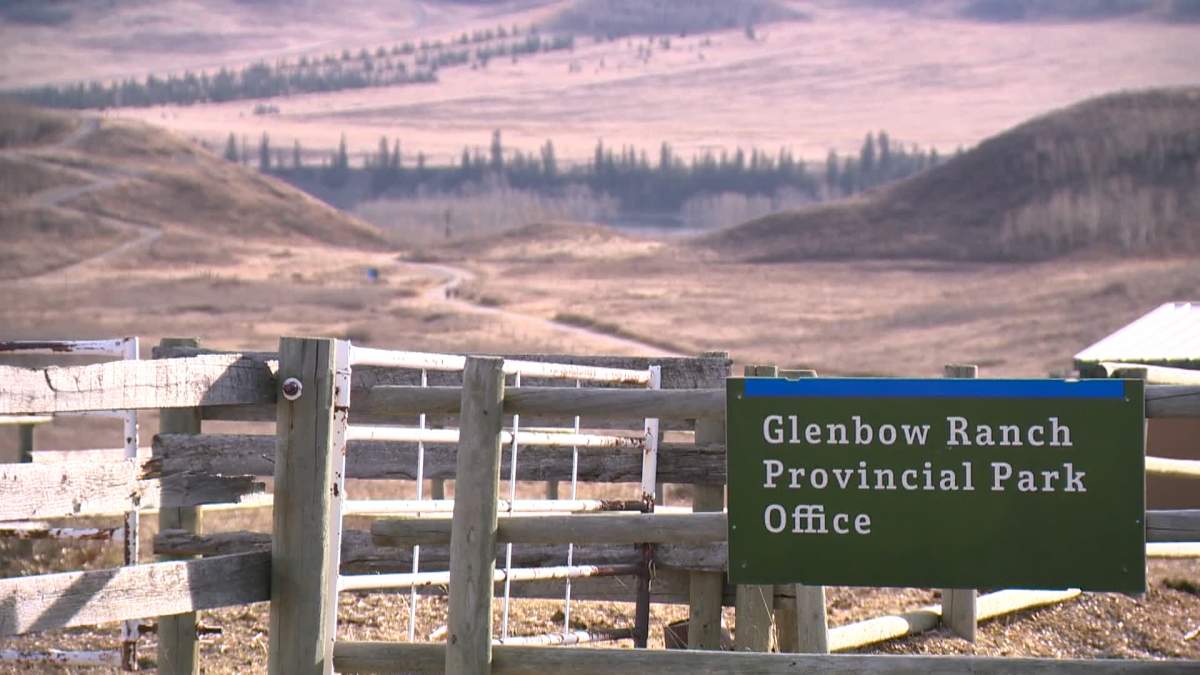A ranch and conservation group located on the Bow River between Calgary and Cochrane is raising concerns that a flood mitigation project could irreparably change the face of the Glenbow Ranch Provincial Park.

“We’re very concerned about the proposed East Glenbow Dam,” Glenbow Ranch Park Foundation CEO Jeromy Farkas said.
“Essentially, it would potentially flood up to half of our park, destroying most of the trail system. And it doesn’t end there. It would also completely destroy and submerge nearby Haskayne Legacy Park.”
The province is currently conducting a feasibility study into three options for a reservoir along the Bow River, to help protect Calgary and communities downstream from flooding and to help surrounding areas in case of drought.

The East Glenbow Dam, which would start in the western edge of Calgary, would require the relocation of the CP Rail line and would flood sections of the provincial park.
Another option is decommissioning the existing Ghost Dam and relocating it.

Get daily National news
A third option would be to create a dam near Morley on the Stoney Nakoda First Nation.
“The challenge we have with this project is it actually would offer the least value of the alternatives,” Farkas said.
“It would hold the least amount of water, as well as it wouldn’t actually protect Cochrane in the event of another flood.”
Farkas said the Glenbow Ranch Park Foundation is strongly in support of coming to the table with a solution that serves everybody.
“We can’t understate the importance of our parklands, our grassland, the wetlands as part of a healthy, functioning biodiversity. So it’s so crucial for a number of different reasons that we keep investing in one of Alberta’s greatest signature parks, which is Glenbow Ranch Provincial Park.”
Glenbiw Ranch is one of the province’s youngest parks, designated in 2011. Its nearly 3,300 acres include a working ranch, hosting more than 5,000 kids in summer camp programs and 200,000 visitors per year.
“We’re expecting that to double or even triple on top of that, when we’re able to finish the Trans-Canada Trail, which will connect Calgary to Cochrane through the construction of a new bridge,” Farkas said.

The park foundation CEO said he and the park will be engaging in the provincial government’s decision-making process, with a decision from the feasibility study expected at the end of 2024.
“At this point, we’re just making the case for why responsible flood management, why responsible water management actually requires parkland, it requires these wetlands. It requires all of these things. It’s not as simple as it sounds to solve this problem for Calgary,” the former Calgary city councillor said, adding he understands the importance of implementing flood management programs.
“We’re going through the course of the research now, but in many ways actually destroying our park will run counter to a lot of these aims.”
The new reservoir could be in operation as soon as 2034.








Comments
Want to discuss? Please read our Commenting Policy first.